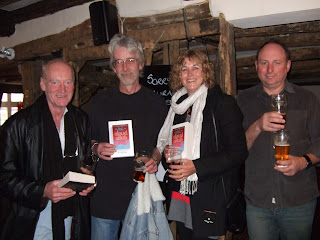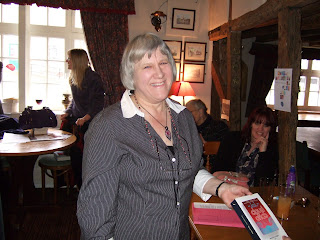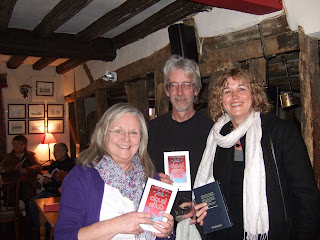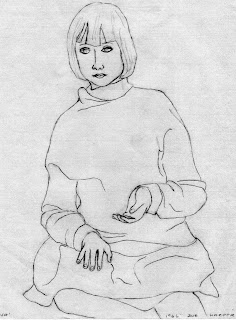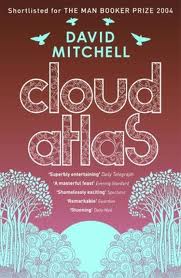As self-appointed family historian I was recently invited to a reunion of descendents of my great aunt Ethel. With all my other history-based commitments the Shorthouses have had to take a back seat just lately. The weekend turned out to be hectic with much travelling across London, followed by a gathering of enthusiastic cousins. Old hatchets were miraculously buried, skeletons rattled, promises made and information pored over and circulated.
So there I was during the preceding week, on hands and knees, rummaging through two very full boxes of documents and photographs, in search of suitable material to take with me on the train to Southampton. Not surprisingly I discovered a few “projects” I'd begun and not completed – they'll wait for another time – and the following “self-portrait”. Since I've teased many sensitive stories out of near strangers over the past dozen years, I thought my children might appreciate reading a little family history of their own.
This is the earliest photo of me of which I know. I can only assume it was taken after my parents, Dorothy and Eric, were married on 23rd December 1948. My birth certificate gives the day I was born as 11th June 1948. Considering I look about six months old in the studio portrait, this would seem about right. The “guilty secret” was at last being officially acknowledged!
In the 1940s my birth would have been called “illegitimate”. I was never told about it, and only worked it out after my mother died and I gained access to her divorce papers which, of course, contained interesting facts like the date of her marriage to my father. What was my mother more ashamed of – me, or her delayed wedding? I don't know as my parents never gave me a hint. Another assumption I have had to make is that my father was awaiting a divorce from his first wife, who was living in South Africa with their child, June: that may have been the reason that I was kept a secret for a while. Following my birth in Scarborough, whilst my parents were living under the condescension of my paternal grandmother Elizabeth, the new family retreated to an old house called “Top th'hill” at Blackshaw Head, out in the wild landscape between Yorkshire and Lancashire close to Hebden Bridge.
My parents never ever celebrated their wedding anniversaries as that would have given the game away! For an inquisitive child I was remarkably dumb about this fact. I only once asked my mother about her wedding. She told me it had been at a Register Office and that she had worn a suit rather than a white dress. I also remember her telling me about an incident in a Dorset cottage when a domestic fire flared into a chimney blaze, due to petrol having been thrown on it. I had always believed this took place on her honeymoon, but on reflection it does not tally with events – she probably never had a honeymoon, not with a sixth month old baby in tow! Perhaps Dorset was the site of my conception...
I was a product of post-war English morality and hypocrisy. Lovers' plans have always, and continue to be, thwarted. Nowadays, though, few people go to such lengths to disguise the simple facts of nature from their children. Through their denial of reality my parents deprived me of the opportunity to empathise with them. More importantly, my mother missed a chance to deepen our relationship at a time when I desperately needed it: in late 1969 I became pregnant with my first child by the man who would later become my first husband. Though my son was very much a desired baby, my marriage turned out to be no better than my parents' in that it offered my wider family a spurious respectability that was utterly dishonest: it, too, faltered and collapsed as their's did, leaving unhappy children in its wake.
The lesson I eventually learned was not to do what others expect, or even demand, of you but only what feels right for you and those you love. Do not deny your history. Be open and brave enough to defend your principles in the face of sneers and contempt. But I'll never be sure if I could have risen to the challenge, only that my mother missed giving me that chance.

